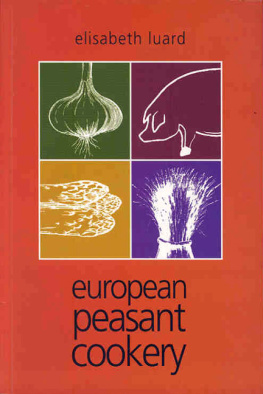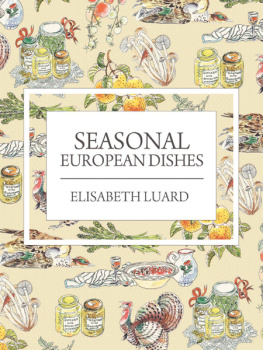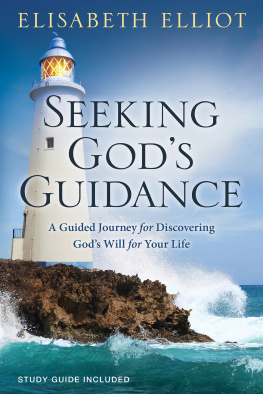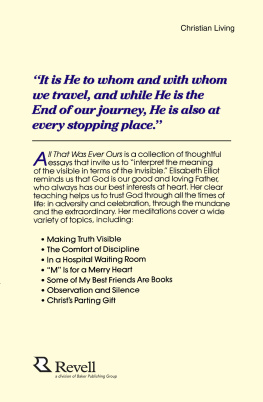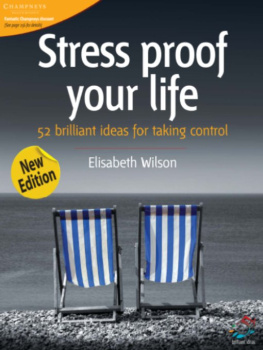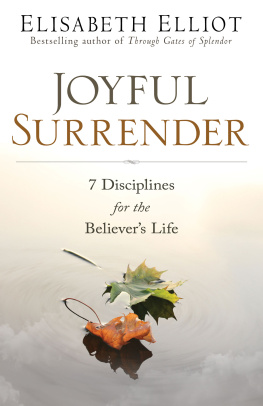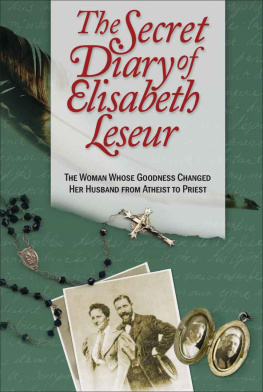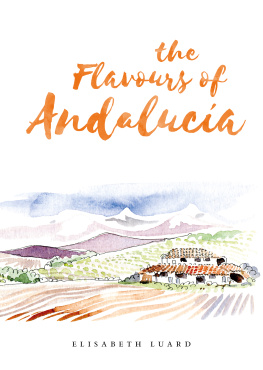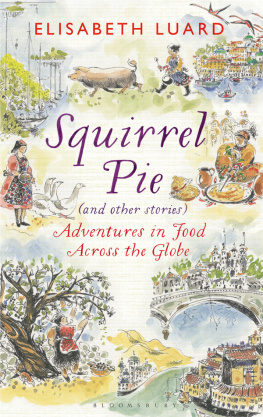ELISABETH LUARD is an award-winning food writer whose work includes European Peasant Cookery (published in the US as The Old World Kitchen, a New York Times benchmark cookbook of the twentieth century), The Food of Spain and Portugal, European Festival Food, Sacred Food and The Latin American Kitchen. She has also written a couple of doorstopper novels including Emerald (WH Smith Thumping Good Read Award), and a trio of memoirs-with-recipes including Family Life (Guild of Food Writers Book of the Year 1997), and was awarded the Glenfiddich Trophy for Food Writing in 2007. She contributes regularly to national newspapers and magazines including the Telegraph, Daily Mail, Country Living and the Oldie and is currently Director of The Oxford Symposium on Food & Cookery. Brought up in South America, Spain and France as a member of a diplomatic family, married for forty years to the late Nicholas Luard novelist and founding father of the satire movement of the 1960s she brought up their family of four children in a remote valley in Andalucia, where she developed her early career as artist and illustrator. She still travels widely, continues to use sketchbook and watercolours as a way of recording images and recipes, and now happily entertains her grandchildren in a remote farmhouse in the wilds of Wales. A Cooks Year in a Welsh Farmhouse is her most recent book.
COOKBOOKS
EUROPEAN PEASANT COOKERY
THE PRINCESS AND THE PHEASANT AND OTHER RECIPES
THE BARRICADED LARDER
EUROPEAN FESTIVAL FOOD
THE FLAVOURS OF ANDALUCIA
COUNTRY COOKING
SAFFRON AND SUNSHINE
SACRED FOOD
THE LATIN AMERICAN KITCHEN
THE FOOD OF SPAIN AND PORTUGAL
CLASSIC FRENCH COOKING
FOOD ADVENTURES
TRUFFLES
CLASSIC SPANISH COOKING
SOUP GALORE
RECIPES AND RAMBLINGS
TAPAS: CLASSIC SMALL DISHES FROM SPAIN
A COOKS YEAR IN A WELSH FARMHOUSE
MEMOIRS-WITH-RECIPES
FAMILY LIFE
MY LIFE AS A WIFE
NOVELS
EMERALD
MARGUERITE

Contents
With the loss of tradition we have lost the thread which safely guided us through the vast realms of the past, but this thread was also the chain fettering each successive generation to a predetermined aspect of the past. It could be that only now will the past open up to us with unexpected freshness and tell us things that no one has yet had ears to hear.
HANNAH ARENDT (190675), Nomos I: Authority.
Carl J. Friedrich, ed. 1958
My thanks are most particularly due to my husband Nicholas, who accompanied me with fortitude and a firm finger on the map on forays into unknown territory in Eastern and Northern Europe; and to those kindly and generous souls who so patiently and tolerantly shared their hearths, skills and daily dinners with us along the way. On later journeys, while making The Rich Tradition for SBS Australia and BBC2, to Carmelo Musca, wizard of the camcorder, and the stoic Piercy Porter, our man with his finger on the recording button camera-director and soundman respectively both of whom left the tranquillity and sunshine of Perth to film, come rain or storm, in outlandish places and eat weird food; not least among their many virtues being that they only rarely complained about an excess of cabbage soup. And to all those who helped in the making of the series, both as participants and performers, and who contributed so much to my particular sum of human happiness.
Gratitude is also due, as always, to Broo Doherty, the best and most tolerant editor in the business, and to my beloved agent Abner Stein whose support is and has always been above and beyond the call of duty. Thanks are also due to Hazel Orme who took on the Herculean task of copy-editing the manuscript; to Julia Lloyd who designed the book and smacked all my little drawings into shape; and to Shauna Newman who heroically collated the proofs.
It is not a bad thing that children should occasionally, and politely, put parents in their place.
COLETTE (18731954), Chri (Paris, 1920)
This book is Hereby declared a family-free zone.
Theres nothing more liberating in the life of a mother than that moment when the offspring declares unilateral independence the connection can never be severed, but independence is a heady feeling. Therell undoubtedly come a moment when Im too old to spoon in the pap and I find myself in an old folks home sitting against the walls while they vacuum in the middle, but now its time to spread the wings and fly.
I make an exception for my companion of these past thirty-five years, Nicholas. Husbands dont count as family after all, theyre no relation. Absolutely not, I can reply with confidence when asked if I am related to the father of my children well, as much confidence as family trees can deliver Im just his wife.
My children are up and running. We only come together at those feasts and festivals that remain central to our lives, spent, as always, round the kitchen table. This is the only time when I shall permit myself a mention of their presence; otherwise, its every man for himself.
Fifty years on the planet is not much in the sum of human experience. Nevertheless, the fiftieth is a milestone. It marks the end of the breeding years for women, even if not for men a time of change, mental no less than physical, a rite of passage from which some of us never recover. At such a time we need all the help we can get.
My fiftieth birthday present to myself was to ask questions of others rather than of myself. As a mother of four children, my experience of living had been largely through my childrens eyes. It was time to move on, intellectually and physically, both directly, by asking questions of my contemporaries and friends, and indirectly, since in my chosen career as a food-writer I believed that it was in domestic habit that we knew who we were that the lessons of the past could be more easily assimilated through the language of the senses rather than that of the intellect.
I would not be so foolish as to expect that through asking questions I might find answers, simply that throughout my life the experience of others has taught me how to understand myself.
The women I count as friends among my contemporaries were gathered at a time when we were still unformed scarcely more than girls, not even women. At that time, none of us could be sure of what we might become. Now, thirty years later, some, like me, are still married to the men by whom they had children, others are divorced, some remarried, some resolutely single, some busy with careers, some even with grandchildren.
I started cautiously, skimming the surface, with a friend from my schooldays, not a natural beauty although a glamorous media career has ensured she must always present herself as such. You probably wont believe me, but I really dont bother at all. Im not at all organized. I never worry about beauty routines, things like taking off my makeup before I go to bed. Of course I cover up the grey hairs and retouch the rust, but when I get myself together and go out to a party, I know I can knock spots off the thirty-somethings the young marrieds with their babies, looking podgy and plain and exhausted. I keep the body in shape swimming, yoga, properly supervised exercise. I always keep in trim but, then, I think its easier for those of us who have never been through pregnancy. My doctor says that whatever happens to the woman, you can always tell if shes had children the muscles change after childbirth, and after fifty they wont stretch.


